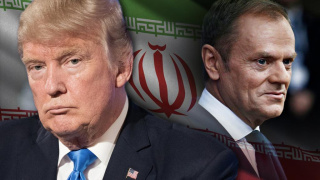Kerry’s Iran allegations complicates Biden’s push to rejoin nuke deal
Republicans expressed outrage on Monday over reports of leaked audio of Iranian Foreign Minister Mohammad Javad Zarif saying former Secretary of State John Kerry informed him that Israel attacked Iranian interests in Syria at least 200 times.
The report prompted Kerry's critics to accuse him of disloyalty and raised new questions about the effort by the Biden administration to return to compliance with the nuclear deal commitments.
Kerry took to Twitter to call the allegations "unequivocally false" and "never happened—either when I was Secretary of State or since."
Sen. Rick Scott, R-Fla., joined fellow Republicans who called the allegations "deeply disturbing."
Scott said if true, it "clearly shows why the United States cannot for a second entertain re-entering the failed Iran Nuclear Deal."
Former Secretary of State Mike Pompeo called for a formal investigation into the leaked audio and told the Washington Free Beacon that the tape proves what he has been saying for years: that Zarif continued to engage with Kerry "on policy matters after Kerry’s public service."
"Before we cut a deal with Iran that reduces Americans’ security, it would be good to know what the arrangement, if any, may have been between these two leaders," he said.
Rep. Mike Gallagher, R-Wis., said, "It is unfathomable that any U.S. diplomat, past or present, would leak intelligence to the world’s leading sponsors of terrorism at the expense of one of our staunchest allies," according to Politico.
As previously reported by Fox News, Kerry has been accused of colluding with Iran to undermine President Trump during his presidency in an effort to ease relations between the U.S. and Iran.
After the leak became public, Iranian Foreign Ministry spokesman Saeed Khatibzadeh did not dispute the tape's authenticity, the Associated Press reported.
Agreed to under former President Obama in 2015, the landmark accord prompted a raging debate with supporters arguing it provided a path to mitigate Iran's nuclear proliferation.
Others suggested the deal could be unconstitutional and wasn't tough enough on the rogue state. Ripping the agreement as "the worst deal ever negotiated," former President Trump withdrew the U.S. from the accord in 2018.
